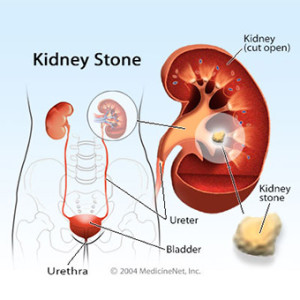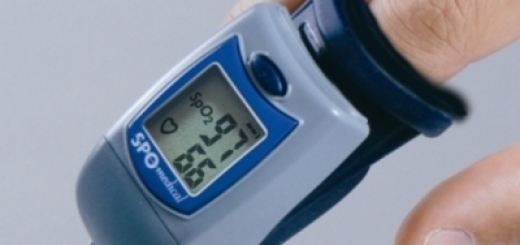First aid for Kidney Stones
A kidney stone is a hard mass developed from crystals that separate from the urine and build up on the inner surfaces of the kidney. Normally, urine contains chemicals that prevent or inhibit the crystals from forming. These inhibitors do not seem to work for everyone, however, so some people form stones.
If a stone becomes large enough to block the flow of urine out of the kidney, it can cause pressure, pain and infection. If a stone moves out of the kidney with the flow of urine, it can cause severe pain as it moves through the ureters – the tubes that carry urine from the kidney to the bladder.
Depending on its size and position, an untreated kidney stone could cause permanent damage – an infection of the kidney where there is ureteric blockage can rapidly cause kidney destruction with fever and septicamia.
Many kidney stones don’t move and are too small to cause symptoms. If a kidney stone causes a blockage, or moves down the ureter, it may cause some of the following symptoms:
- pain or aching in the back on one or both sides,
- spasms of intense pain,
- bloody, cloudy or smelly urine,
- nausea and vomiting,
- a frequent urge to urinate,
- a burning sensation during urination,
- fever and chills.
These can also be symptoms of a urinary tract infection, or cystitis.
If you suspect someone has a kidney stone then they should seek medical attention. Although the stones may pass, it is important to rule out any complications of kidney stones and to provide the patient with adequate pain relief.






